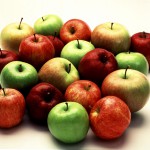Poland’s official document contains a formal complaint on Russia for its recent bans that it has placed on the “agricultural imports from countries that have placed sanctions on Russia”, according to information published in a report by ITAR-TASS, quoting the official information of Poland’s Ministry of Economy.
The complaint refers to the decision of Russian authorities to impose bans on goods produced in the European Union.
Poland’s Minister of Agriculture, Marek Savitsky, on August 12, said that losses to the country’s agricultural sector as a result of Russia’s sanctions could amount to a sum of 750 million euros.
Last year, the monetary volume of shipments to Russia reached 1.3 billion Euros. An earlier summary of losses for the Fruit and Vegetable sector of Poland was valued at less than 500 million euros.
